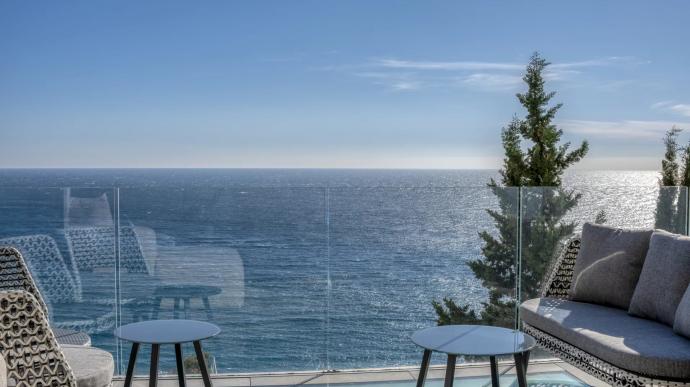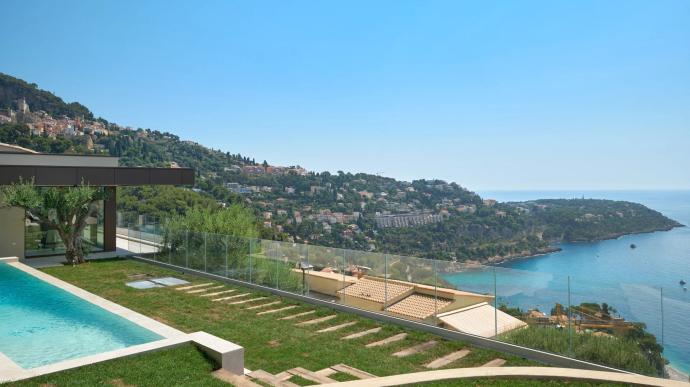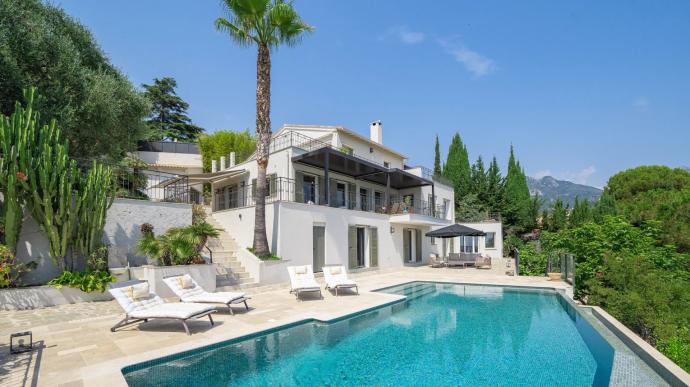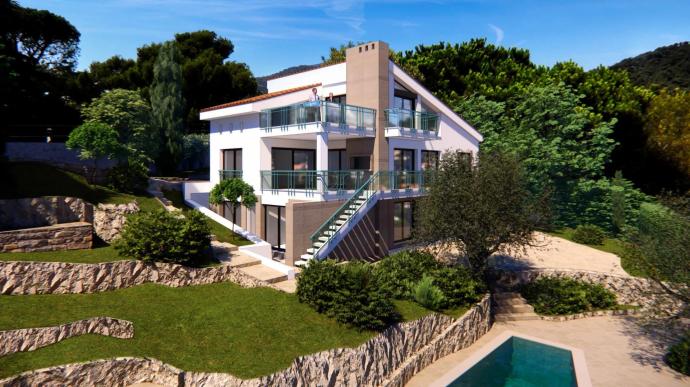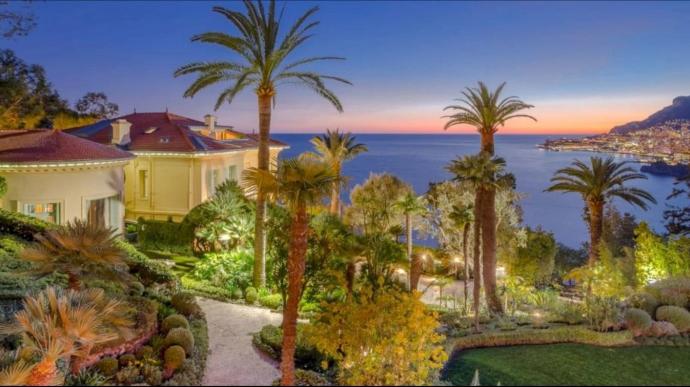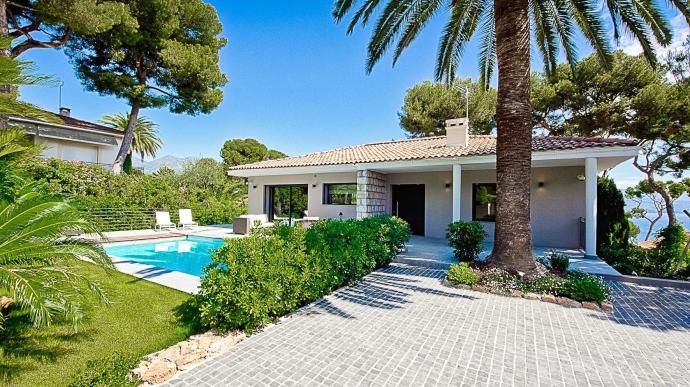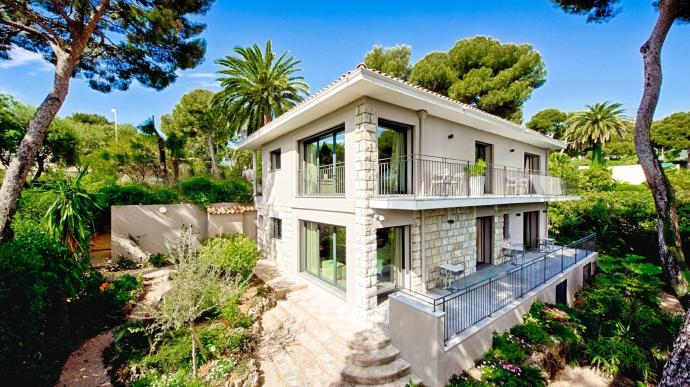If you are looking for a luxury holiday on the French Riviera, Roquebrune Cap Martin is a must-see destination where dream villas steeped in history are hidden at the foot of its medieval village and along the coast to the gates of Monaco. Shaped by its Monegasque and Italian past, the architecture of these mythical residences was adapted during the tourist development of the aristocracy in the 19th century and was inspired by the landscapes cradled by the Mediterranean until the mythical constructions of the 20th century. Discover the fascinating history of these houses which mark out Roquebrune Cap Martin and contribute to its international fame.
Roquebrune Cap Martin: An exceptional geographical location
For more than a century, Roquebrune Cap Martin has attracted the world's greats with the incredible beauty of its turquoise cape and its medieval village, like a watchtower on the Mediterranean.
Its 7 km of shoreline alternates between spectacular sea views and unspoilt nature where maritime pines, palm trees and bougainvillea wind along its jagged coastal path.
Protected from the north winds by Mont-Agel, this climatic resort, which belonged to the Grimaldis for five centuries, underwent a metamorphosis with the arrival of the international aristocracy after 1861, when it became definitively French property.
Along its steep peninsula, the vestiges of its past embrace the pine forest to the shores of the Mediterranean where the panorama on the Pointe de Cabbé and Monaco is exceptional.
From Cap Martin to Saint-Roman, Belle Époque villas shape the landscape
The emergence of the holiday resort in Roquebrune Cap Martin at the end of the 19th century called for the most colossal architectural projects in the areas most prized for their paradisiacal landscapes. This is the case in particular of Cap Martin, which reveals the prolific work of an architect renowned on the Riviera at the time, Hans Georges Tersling.
Tersling hotels & villas in Cap Martin
From 1890 onwards, he designed the Cap Martin grand hotel on 13 hectares of parkland and jagged rocks. This immaculate building on the seafront welcomed a rich clientele until the 1920s.
At the instigation of the Empress Eugénie, wife of Napoleon III, he also built the Villa Cyrnos. This sumptuous residence, with its facade decorated with royal eagles, is set in a garden, one of the most beautiful on the French Riviera.
The Belle Epoque of Roquebrune Cap Martin's architectural development
In the wake of these famous villas, other buildings blend into the intimacy of the Roquebrunois landscape. This is particularly true of the Villa Cypris and its incredible cloister, whose colonnades overlook the Mediterranean and which can be seen from the coastal path. In Byzantine style, this residence, like the Torre Clementina villa, is distinguished by its luxuriant gardens dotted with architectural feats such as its pergola supported by marble columns.
From the Belle Epoque to the first quarter of the 20th century, the prestigious architectural heritage developed in Roquebrune Cap Martin as far west as Saint-Roman. A residential district, like a preamble to the principality of Monaco. From now on, the beautiful contemporary residences mingle with the historical villas of this territory on the Monegasque border.
Modern architecture up to Le Corbusier
The polychromy and light of the Roquebrun landscapes have never ceased to inspire architects. At the beginning of the 20th century, when Belle Époque residences were the norm, Eileen Grey, a famous art deco designer, inspired by modern architects such as Le Corbusier, pushed back the limits of her creativity by building the villa E-1027 on a plot of land overlooking the bay of Roquebrune Cap Martin. With its pure aesthetics, this avant-garde residence bewitched Le Corbusier when it was discovered in 1937.
His admiration for this house and his love for the typical Mediterranean landscape inspired him to create the Cabanon above the villa on a 4 m² plot, close to a guiguette, the Etoile de Mer. Based on an ergonomic and functionalist approach, this square cell of reduced size, ingeniously fitted out, is the result of the research on minimalism which obsesses the architects of the 20th century. Today, this seaside hut is part of Le Corbusier's architectural work, which is listed as a UNESCO World Heritage Site.
These modern entities, jewels of the 1950s lifestyle, indissociable by their design, are now governed by the Cap Moderne association, which allows a real immersion in the world of 20th century architecture through the conservation of these buildings and the transmission of their history.
